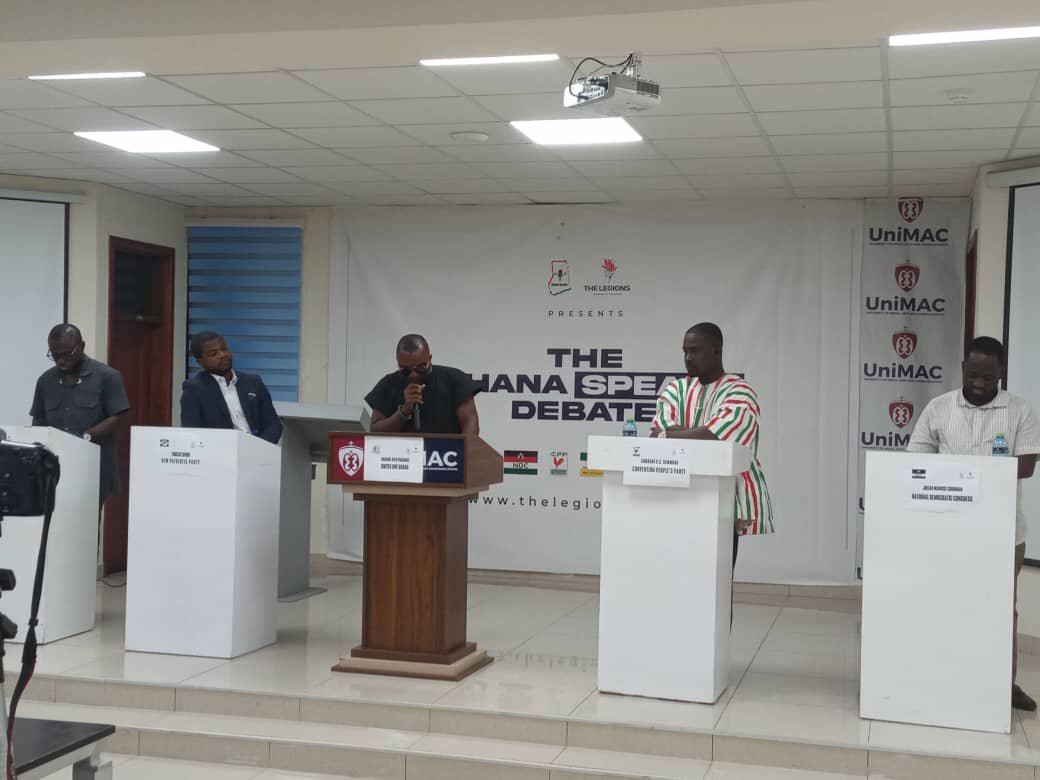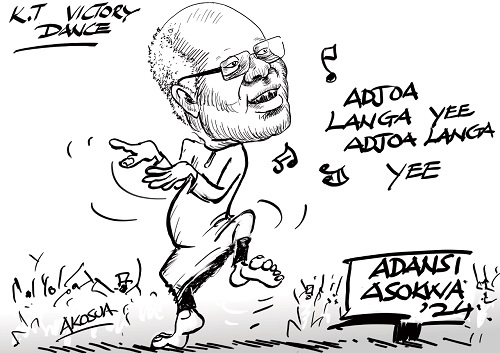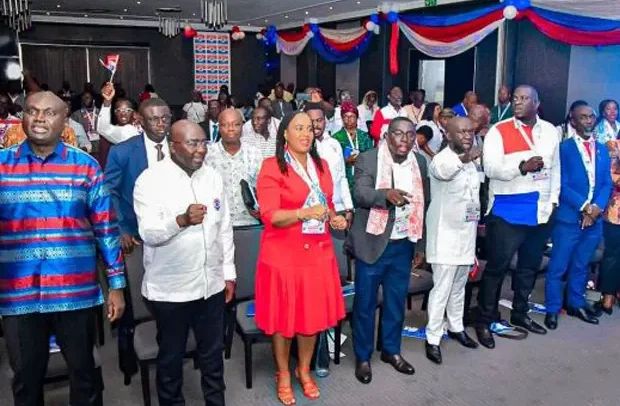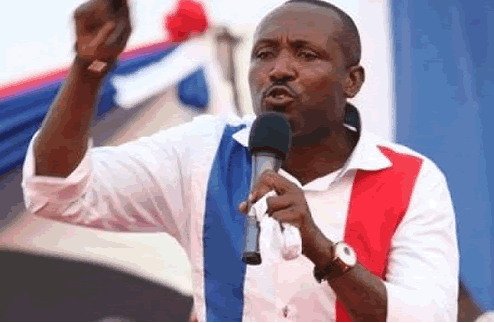
By Samuel OWUSU-ADUOMI
Donald Trump’s victorious 2024 presidential campaign marks one of the most remarkable political comebacks in recent history.
Having faced an electoral loss to Joe Biden in 2020, navigating a storm of legal challenges and surviving an assassination attempt in the heat of the campaign, Trump’s re-emergence as President of the United States is a powerful testament to the impact of strategic messaging.
For political observers and campaign strategists in Ghana, where elections are just weeks away, there are critical lessons to glean from Trump’s playbook. Here, we explore the tactics and insights that propelled Trump to the White House and how they can be adapted to the Ghanaian political landscape.
- Knowing the electorate: The foundation of strategic messaging
A campaign’s strength lies in understanding the voters it seeks to engage. Trump’s campaign team excelled in this arena, meticulously segmenting the electorate to tailor their messages. Data analytics and behavioural science played a pivotal role in identifying key voter groups and crafting narratives that resonated with their values and concerns.
Takeaway for Ghana: Political parties must adopt a similar approach by investing in comprehensive voter research. The electorate in Ghana is diverse, spanning youth, the elderly, rural communities, urban professionals and more. Each of these groups has unique priorities, and the success of any campaign will depend on understanding and addressing these distinct needs.
Tailored messaging that appeals directly to specific segments, such as youth employment initiatives or improved healthcare for seniors, will be more effective than a one-size-fits-all approach.
- Timing and the right platforms: Mastering the art of communication
Timing is everything in politics, and Trump’s team demonstrated a keen understanding of when to launch key messages. They leveraged the power of social media platforms, especially X (formerly Twitter), to reach voters directly and immediately. Trump’s rallies were also carefully timed to coincide with significant political moments, amplifying their influence and reach.
Insight for Ghana: Social media is increasingly influential in Ghana, particularly among younger voters. Political parties must maintain a consistent, dynamic presence on platforms such as Twitter, Facebook and Instagram.
Beyond posting content, the timing of messages is crucial—aligning major announcements or events with the national conversation will maximise their impact. Additionally, radio and television still hold substantial sway, particularly in rural regions. Blending traditional media outreach with digital engagement will ensure a broader reach.
- Navigating controversy with resilience: Turning challenges into opportunities
Trump’s 2024 campaign was anything but smooth. Four criminal indictments, financial investigations, and relentless media scrutiny tested the resilience of his campaign. Yet, Trump’s team managed to turn these controversies into rallying points, framing them as politically motivated attacks. This narrative bolstered Trump’s image as a defiant, anti-establishment leader, appealing to voters who felt disillusioned with conventional politics.
A lesson for Ghana: Controversies and challenges are almost inevitable in any political campaign. The key lies in how these issues are addressed. Candidates and parties should not shy away from difficult topics, but instead address them with strategic messaging that reframes setbacks as evidence of their commitment to change or progress.
For instance, if a candidate faces criticism over policy decisions, they could pivot by emphasising transparency and outlining steps for reform. This approach can build trust and loyalty among voters who value honesty and resilience.
- The power of a unifying slogan: Simplifying complex ideas
A campaign slogan serves as the emotional and ideological anchor of a political message. Trump’s “America First” slogan was a powerful encapsulation of his policy priorities, appealing to patriotism and self-reliance. This simple phrase reminded voters of Trump’s commitment to prioritising American interests, resonating deeply with those who felt overlooked by globalisation and external alliances.
Relevance for Ghana: Political parties should consider how a concise, resonant slogan can capture the essence of their campaign. A slogan like “Prosperity for Every Ghanaian” could convey economic empowerment and unity, addressing widespread aspirations for financial growth and inclusivity. Such a slogan should be backed by substantive policies that reinforce its message, ensuring it resonates as genuine and actionable.
- Diversifying outreach: Expanding beyond traditional campaigns
One of Trump’s winning strategies was his multi-faceted communication approach. While mainstream media played its role, alternative platforms such as podcasts, grassroots organisations and niche digital fora helped Trump reach voters who felt neglected by traditional outlets.
Implications for Ghana: Campaigns in Ghana should diversify their communication strategies to include local community meetings, interactive town halls and engagements through local influencers and content creators. Podcasts and community radio segments can reach audiences that may not engage with mainstream media. Such platforms foster a sense of personal connection and trust, vital for garnering support.
- Engaging core supporters: Energising the base
Trump’s campaign rallies were not just events; they were highly energised platforms that reinforced his connection with his supporters. These rallies created a sense of community, serving both to consolidate Trump’s base and to generate media coverage that amplified his messages.
Valuable insight for Ghana: Political rallies should aim to be more than just speeches. Integrating local musicians, cultural performances and personal stories from the community can make these events memorable and engaging. Such rallies not only motivate core supporters but can also attract undecided voters who appreciate a candidate’s ability to inspire and mobilise.
- Seizing opportunities and countering opponents
Trump’s campaign was adept at responding to his opponent’s weaknesses. By highlighting gaps in Kamala Harris’ platform and emphasising areas where his policies appeared stronger, Trump was able to keep the focus on comparative strengths.
Lesson for Ghana: Political campaigns should remain vigilant and adaptable, ready to pivot their messaging in response to opponents’ vulnerabilities or shifts in voter sentiment.
This doesn’t mean negative campaigning; rather, it’s about drawing clear distinctions between competing visions for the country’s future. For instance, if an opponent focuses solely on infrastructure, a candidate could expand on related topics like job creation tied to infrastructure projects.
- The balance of tradition and modernity
Trump’s campaign struck a balance between traditional, value-driven rhetoric and the use of modern, data-driven campaign tools. This combination allowed him to appeal to a wide spectrum of voters, blending nostalgia with innovation.
A takeaway for Ghana: Successful campaigns should reflect both respect for cultural and traditional values and an embrace of contemporary strategies. For example, promoting policies that emphasise national pride and heritage while also discussing digital innovation and youth opportunities could bridge generational divides and build broad support.
Building a winning strategy
Trump’s 2024 campaign has set a new benchmark for what strategic communication can achieve in the high-stakes world of politics. For Ghana, where elections are just weeks away, there is much to learn from this example.
Effective political communication is not just about what is said but how, when and through which channels it is conveyed. As Ghanaian parties fine-tune their final strategies, they should consider the importance of targeted, well-timed messaging, resilience in the face of challenges, and the value of fostering a deep, emotional connection with voters.
These elements, thoughtfully executed, can make the difference between a message that resonates and one that falls flat. As the campaigns unfold, keeping these lessons in mind will be crucial for those aiming to craft a compelling narrative that carries them to electoral success.
The post Trump’s path to victory: political messaging lessons appeared first on The Business & Financial Times.
Read Full Story

















Facebook
Twitter
Pinterest
Instagram
Google+
YouTube
LinkedIn
RSS